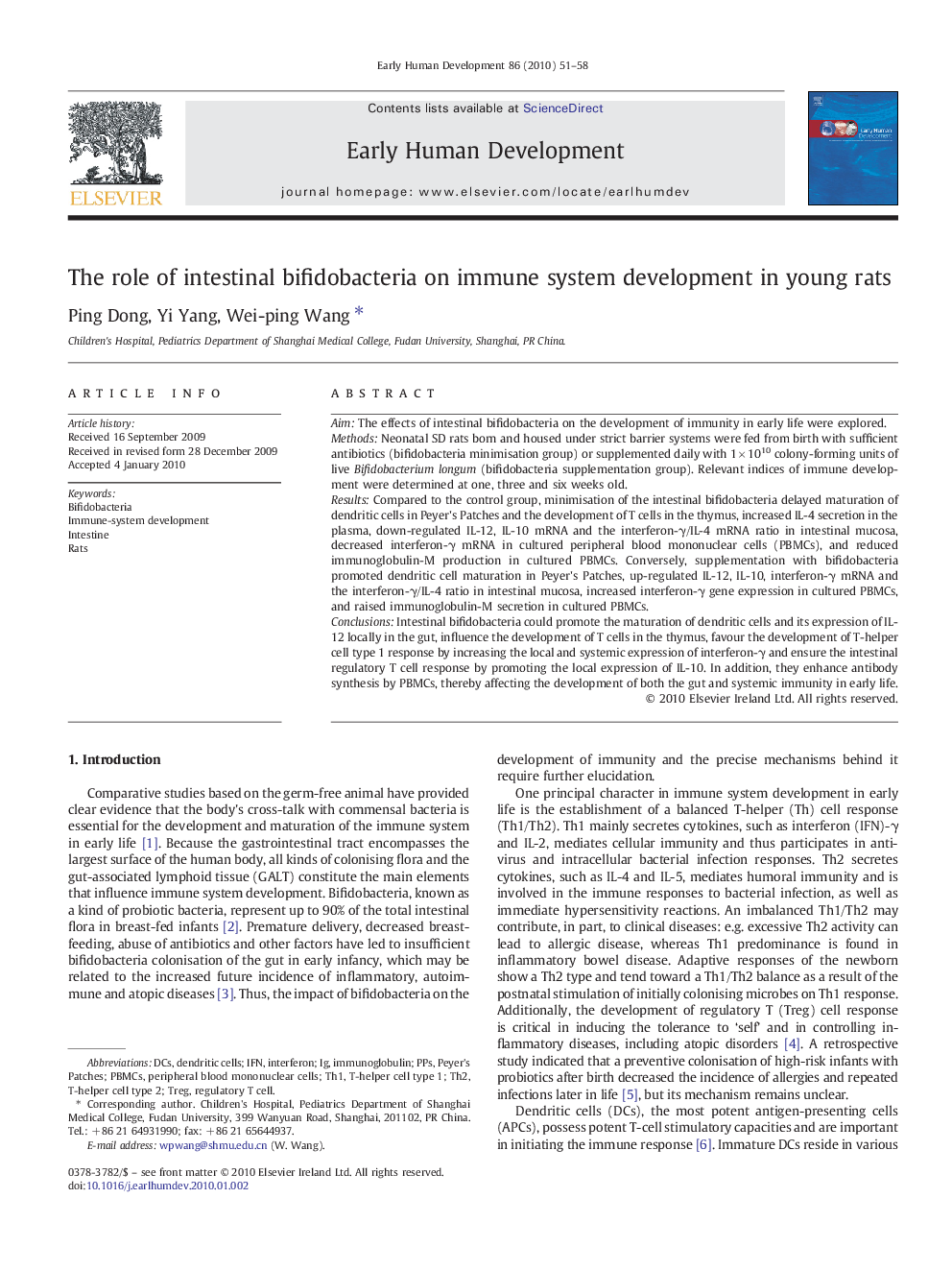| Article ID | Journal | Published Year | Pages | File Type |
|---|---|---|---|---|
| 3918478 | Early Human Development | 2010 | 8 Pages |
AimThe effects of intestinal bifidobacteria on the development of immunity in early life were explored.MethodsNeonatal SD rats born and housed under strict barrier systems were fed from birth with sufficient antibiotics (bifidobacteria minimisation group) or supplemented daily with 1 × 1010 colony-forming units of live Bifidobacterium longum (bifidobacteria supplementation group). Relevant indices of immune development were determined at one, three and six weeks old.ResultsCompared to the control group, minimisation of the intestinal bifidobacteria delayed maturation of dendritic cells in Peyer's Patches and the development of T cells in the thymus, increased IL-4 secretion in the plasma, down-regulated IL-12, IL-10 mRNA and the interferon-γ/IL-4 mRNA ratio in intestinal mucosa, decreased interferon-γ mRNA in cultured peripheral blood mononuclear cells (PBMCs), and reduced immunoglobulin-M production in cultured PBMCs. Conversely, supplementation with bifidobacteria promoted dendritic cell maturation in Peyer's Patches, up-regulated IL-12, IL-10, interferon-γ mRNA and the interferon-γ/IL-4 ratio in intestinal mucosa, increased interferon-γ gene expression in cultured PBMCs, and raised immunoglobulin-M secretion in cultured PBMCs.ConclusionsIntestinal bifidobacteria could promote the maturation of dendritic cells and its expression of IL-12 locally in the gut, influence the development of T cells in the thymus, favour the development of T-helper cell type 1 response by increasing the local and systemic expression of interferon-γ and ensure the intestinal regulatory T cell response by promoting the local expression of IL-10. In addition, they enhance antibody synthesis by PBMCs, thereby affecting the development of both the gut and systemic immunity in early life.
